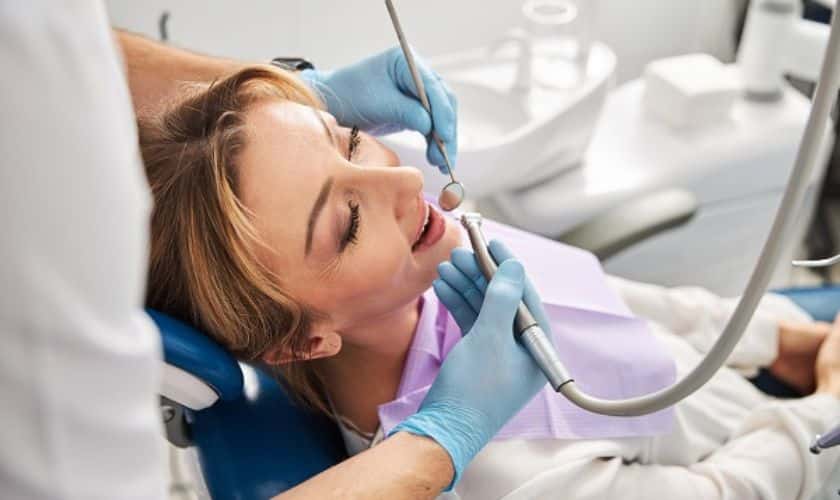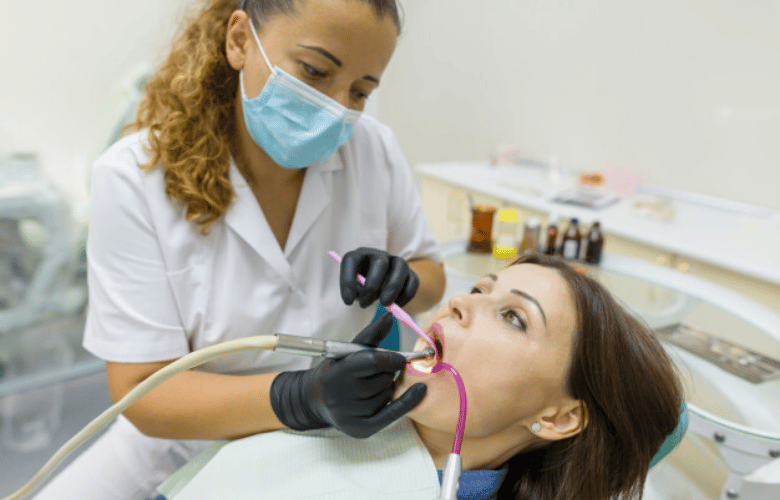Top Family, Cosmetic and Implant Center In 537 Amherst St, Nashua, NH 03063
How To Combat With Dental Phobia. Step By Step Guide

Fear of visiting a dentist is nothing new. But avoiding it forever can be an invitation to complex ailments in the future. Considering the worldly population, it is seen that approximately 60% of them suffer from dental fear. Additionally, according to a post on Colgate Oral Care Center up to 15% of the Americans avoid seeing the dentist due to dental fear and anxiety.
This post will help you get an overview of:
✔ What is Dental Phobia?
✔ Review Of The Dental-Care Literature,
✔ Classification Of Dental Phobia, and
✔ Tips To Combat With Dental Fears.
What Is Dental Phobia?
Dental Anxiety, also known as Dental phobia or odontophobia, is the fear of dental treatment. This could manifest itself in the form of panic attacks and anxiety. While there are many cases when dental fear is minor, there are also extreme cases when dental fear can trigger other complex health issues.
Dental phobia results in individuals postponing dental care until the situation becomes an emergency. A fear of dental treatment can also be the result of some other psychiatric disorder. Let us look at what dental phobia is before discussing how to combat it.
Understanding The Definition Of Phobia
“Phobia” is fear that is irrational and unreasonable. Individuals having this kind of “phobia” have acquired it due to earlier painful or humiliating experiences or listening to experiences others have had. For such individuals, the fear isn’t deep-rooted and taking a friend with them to the dentist or visiting a more caring dentist is all that is needed to combat it.
Is This Really Phobia?
Most individuals with dental phobia don’t actually suffer from an extremely unreasonable fear. An experience with a good dentist, who is more understanding and uses less irritating and painful dental procedures, takes care of the fear in most cases. As a result, the use of the term “dental phobia” in most cases is objected to in many scientific circles, particularly by researchers such as Stefan Bracha, in an article published in the Hawaii Dental Journal.
Bracha, Haim & Vega, Edward & B Vega, Carrie. (2006). Posttraumatic Dental-care Anxiety. “Dental Phobia” is a misnomer. …… (aka Don’t Waterboard Children). Hawaii dental journal. 37. 17-9. A NOTE. As a PTSD research psychiatrist I decided to look into this topic after finding out that some combat veterans do not use the excellent VA dental care they are eligible for because they ‘feared dentists since they were children’ At least three of them remembered their childhood Dental Care experience as ‘waterboarding’.
Posttraumatic Dental-care Anxiety. Is Dental Phobia a Misnomer?
.
This area was outside our main focus of Warzone Fear, but we are told that the quality of this review is such that we should have submitted it to a major dental journal. If somebody wants to write a brief editorial or commentary based on this material they are welcome to do it.
,,,,,,,,,,,,,,,,,,,,,,,,,,,,,,,,,,,,,,,,,,,,,,,,,,,,,,,,,,,,,,,,,,,,,,,,,,,
ABSTRACT.
In this review article, we argue that the term “dental phobia” is a misnomer. The problem with using the term “phobia” in a dental-care context is as follows: by definition, phobias involve a fear that is “excessive or unreasonable,” which the individual recognizes as such, and in which the anxiety, panic attacks and phobic avoidance are not better accounted for by another disorder, including posttraumatic stress disorder (PTSD).
Most individuals with dental “phobia” do not recognize their symptoms as “excessive or unreasonable” and in that sense, resemble individuals with PTSD. Our review of the dental-care literature suggests that true (innate) dental phobias (akin to unreasonable fear at the sight of blood or a syringe) probably account for a smaller percentage of cases, and that the vast majority of dental-care anxiety (DA) cases stem from aversive dental experiences. Research has documented that individuals who reported having experienced painful dental treatments and perceived a lack of control in the dental situation were approximately 14 times more likely to also report higher dental fear, and approximately 16 times more likely to report being less willing to return to the dental treatment. Therefore, we propose that this psychological condition should be conceptualized as Posttraumatic Dental-Care Anxiety (PTDA), and should be classified as part of the Posttraumatic Stress Disorder (PTSD) spectrum in the forthcoming Diagnostic and Statistical Manual of Mental Disorders, fifth edition (DSM-V).
Classification Of Dental Phobia
Dental phobia, in the strictest sense, it has been argued, should be classified as belonging to Post traumatic Stress Disorder (PTSD) spectrum of conditions, at lower end of the scale. Extreme cases of dental phobia require pharmacological and behavioral treatment. The closeness of the patient’s relationship with the dentist that leads to greater understanding on the part of the latter is vital in calming the anxiety.
Often it isn’t pain as such that causes phobia but rather the behavior or treatment technique of the dentist that is responsible. But awareness about dental fears is high in the dental community and doctors can deal with such patients appropriately. Administration of general anesthesia, sedation and oral sedative containing benzodiazepine are generally the pharmacological treatment techniques.
Tips To Combat With Dental Phobia
Here are some quick steps that can greatly help you get rid of dental fear at any given time.
- Relating the fear to close friends often eases the tension. Understanding friends can comfort, sympathize with and even relate with such experiences.
- Research has also suggested that involvement in online dental anxiety forums and support groups helps conquer or at least deal with the fear in a satisfactory manner. Such individuals would then not postpone important visits to the dentist.
- In the case of a treatment involving invasive techniques, a good dentist can encourage the patients, telling them about the advancements of modern sedative and aesthetic treatments that eliminate pain during the procedure.
- Supportive friends and family or online forum members can offer encouraging information and educated support.
To Conclude,
Since a fear of dental treatment can bring about poor oral and overall health which could easily contribute to a lack of self confidence, it must be dealt with promptly. Consulting dental fear clinics, if they’re near you, or psychologists, and discussing the matter will tell you how to control a dental phobia.
Additionally, as soon as you enter our dental clinic, we will help you feel at ease so that you can get the treatment done in the most convenient way possible.
If you find this post helpful, do share it with your family, friends and with your social peers. Keep following this space as we keep on updating new posts periodically.




